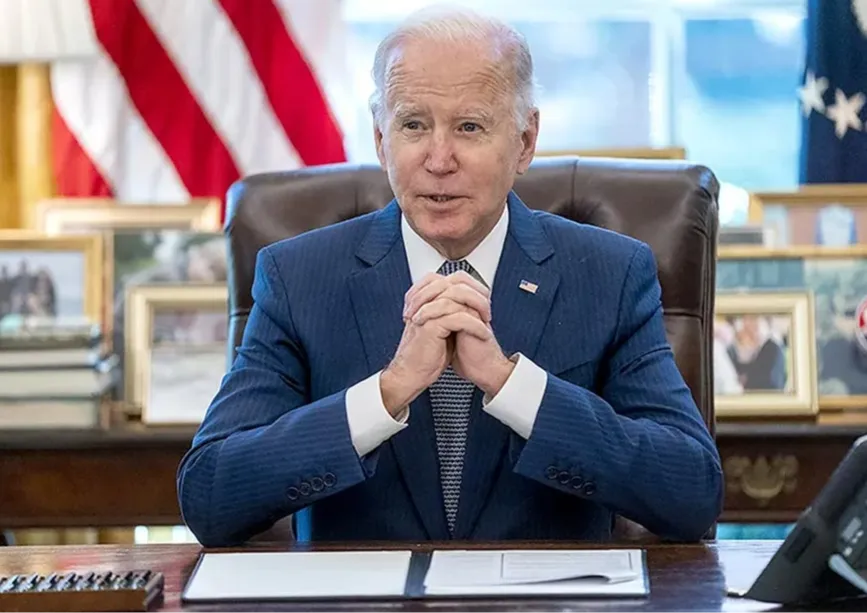-
CENTRES
Progammes & Centres
Location
For the US, this decision is not only problematic on humanitarian grounds but also inconsistent with previous positions on weapons supplies for Ukraine

With the conflict in Ukraine stuck in limbo over the past few months and Kyiv facing shortages in conventional artillery shells, the United States (US) President Joe Biden decided last week to supply Kyiv with the controversial cluster bombs banned by more than 100 countries.
With a devastating legacy of deployment during World War II, the Vietnam War, the War in Afghanistan, and the Iraq War, cluster bombs represent some of the most gruesome and debilitating means of modern warfare. This is largely because cluster munitions cause excessive harm to civilians and non-combatants long after deployment. Estimates suggest that nearly 20,000 people in Laos have been killed by cluster munitions that exploded many years after they were fired during the Vietnam War.
This is precisely why states actively prohibit their use through the Convention on Cluster Munitions. Signed in 2008, the Convention prohibits the production, deployment, transfer, and stockpiling of cluster munitions, essentially seeking to end the suffering and harm caused by them completely.
With a devastating legacy of deployment during World War II, the Vietnam War, the War in Afghanistan, and the Iraq War, cluster bombs represent some of the most gruesome and debilitating means of modern warfare.
Given this context, the US announcement set off a chain of criticisms and reactions from allies and advocacy groups advising the Biden administration to rethink its stance. The United Kingdom (UK), Spain, New Zealand, and Germany declared that they would not supply cluster munitions to Ukraine.
For the US, this decision then is not only problematic on humanitarian grounds but also inconsistent with previous weapons supply policies for Ukraine.
While battlefield logic may dictate the addition of cluster munitions to Ukraine's arsenal, President Biden's decision opposes the humanitarianism, internationalism, and rule of law that the United States has championed so far.
Further, these supply could serve as a problematic precedent for other states to deploy cluster munitions in their conflicts. The message inherent in such a decision is that international conventions can be overlooked when convenient. The imminent transfer also undermines the efforts of the Convention on Cluster Munitions to reduce their proliferation. For Kyiv, doubling down on cluster bombs reflects a fleeting commitment to largely accepted international humanitarian law and conventions, even if they are not signatories to them. America's announcement also represents an inconsistency in its weapon transfer policies towards Ukraine.
Essentially, there seems to be a continuous change in its official stance on weapon systems that the US can and cannot supply Ukraine. With the latest decision, the red lines on military support are blurred.
America's announcement also represents an inconsistency in its weapon transfer policies towards Ukraine.
During the initial days of the Ukraine conflict, Washington took a position of not supplying advanced and sophisticated weapons systems. This included a strict denial of long-range weapons which could strike inside Russia's territory. The logic was to prevent any escalation. Ukraine had also demanded fighter jets, but they were completely off the negotiation table.
However, as the conflict continued and circumstances changed, these red lines were reworked, and the US transferred sophisticated weaponry to Ukraine. This supply included the High-Mobility Artillery Rocket Systems, Patriot air defence systems, and Abrams tanks. Towards the end of 2022, the White House changed track and dropped its resistance to providing Ukraine with long-range weapons. In another inconsistency, the US also reworked its resistance to sending fighter jets and supported Ukraine's demand for them. Washington has now allowed American-made F-16s to be supplied to Ukraine by Western allies while also agreeing to train Ukrainian pilots.
Beyond such inconsistencies, the way cluster bombs operate is linked to long-term threats. Once mid-flight, they disperse into many smaller bomblets or sub-munitions. These smaller munitions then have the capacity to fall and strike over a widespread area. According to estimates, the strike area of cluster bombs can cover areas of multiple football fields.
Looking at the current state of play, Ukraine can use them effectively to pry the Russians out of their current defences along the border regions.
The fuse of each bomblet or submunition is activated before impact to enable cluster bombs to detonate on landing. However, in practice, many cluster bombs do not detonate on impact. Estimates suggest that 10 to 40 percent of clusters remain undetonated after impact. In essence, it becomes a landmine which prolongs misery, harm, and threat to civilians.
Though, US defence officials state that the failure rate of American-made munitions is around 2.3 percent, there is still enough scope for error and harm to non-combatants in Ukraine.
On the battlefield, given their ability to target fortifications and trenches, cluster munitions can be a catalyst for Ukraine. Looking at the current state of play, Ukraine can use them effectively to pry the Russians out of their current defences along the border regions. Cluster bombs will also temporarily allow Ukraine to limit Russian attacks, giving them space and time to clear the landmines that restrict their movement forwards.
While the logic of warfare may support this transfer, it remains contrary to America’s values and erstwhile policies. Even though Ukraine has promised to use cluster munitions responsibly, given its history, it is nearly certain that these munitions will cause long-term harm to civilians. Now only the extent of the damage incurred from these munitions can be managed.
Suchet Vir Singh is an Associate Fellow with the Strategic Studies Programme at the Observer Research Foundation
The views expressed above belong to the author(s). ORF research and analyses now available on Telegram! Click here to access our curated content — blogs, longforms and interviews.

Suchet Vir Singh is an Associate Fellow with the Strategic Studies Programme. His research interests include India’s defence services, military technology, and military history. He ...
Read More +